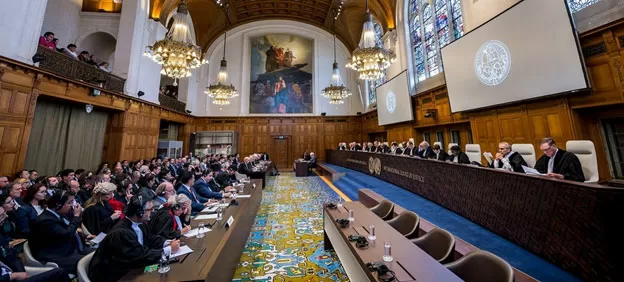The African continent is a land of immense beauty, diversity, and resources. However, it also bears the burden of being home to some of the world’s most impoverished and indebted countries. The harsh reality that comes with this debt is that African governments are often faced with a difficult choice between fulfilling their obligations to creditors or meeting the basic needs of their citizens. This is a predicament that has been plaguing the continent for decades, but one that has not received the attention it deserves – the environmental and social impacts of perpetuating debt. Indeed, discussions between African sovereign debtors and their creditors have largely ignored these critical issues, but it is high time they are brought to the forefront of our conversations.
At its core, the issue of sovereign debt is a financial one. It is a situation where a country borrows money from external sources, such as other governments, international financial institutions, or private investors, and is obligated to pay back the borrowed amount with interest. When a country is unable to fulfill its debt obligations, it becomes “in distress,” meaning it is unable to service its debt and is at risk of defaulting. This is a precarious position for any country to be in, but for African countries, it is a common and recurring problem.
For decades, African countries have been trapped in a cycle of borrowing to meet their financial needs, only to find themselves saddled with crippling debt burdens. This debt not only drains their already limited financial resources but also robs them of the opportunity to invest in much-needed social and environmental initiatives. These countries are forced to divert funds from their budget, which should have been allocated towards essential services like healthcare, education, renewable energy, and water, towards debt repayment. As a result, the most vulnerable in society, such as women, children, and the elderly, bear the brunt of this debt burden, while their governments struggle to keep up with their financial obligations.
The debt burden facing African countries is not just a financial crisis; it is a crisis of human rights and the environment. The debt trap has a direct impact on the well-being of citizens as it limits their access to essential services. For instance, the diversion of funds away from healthcare means that people cannot access quality medical care, leading to preventable deaths and increased levels of poverty. Similarly, a lack of investment in education means children are unable to access quality education, perpetuating a cycle of illiteracy and poverty. In terms of the environment, countries often have to cut down on their expenditure for climate-friendly projects, such as renewable energy, in order to meet their debt obligations. This has severe consequences for climate change and the environment, not just in Africa but globally.
Despite these serious repercussions, discussions between African sovereign debtors and their creditors often focus on financial, economic, and contractual issues. While these are essential aspects of the debt crisis, the environmental and social impacts cannot be ignored. The international community, as well as creditors, must acknowledge the detrimental impact of perpetuating African countries’ debt. It is time to have a more holistic conversation that considers the well-being of citizens and the environment.
One way to address this issue is through debt relief programs. Many African countries have had to resort to debt restructuring and forgiveness programs in the past to ease their financial burdens. However, these initiatives are often inadequate, and the process can be long and drawn-out, further delaying the required funds for social and environmental projects. A more effective solution would be for creditors to consider the social and environmental impacts of their lending policies and for African countries to have a seat at the table during negotiations. This would ensure that the needs and concerns of citizens and the environment are taken into account when designing debt repayment plans.
Furthermore, it is crucial for African countries to implement responsible borrowing practices and prioritize the well-being of their citizens and the environment. This includes developing and enforcing strict borrowing guidelines, conducting thorough impact assessments, and promoting transparency and accountability in debt management. It is also essential for these countries to diversify their economies and prioritize sustainable development to reduce their reliance on external borrowing.
In conclusion, African sovereign debtors in distress are faced with difficult choices that have far-reaching environmental and social consequences. The current approach to debt negotiations, which primarily focuses on financial and contractual concerns, does not adequately address the human rights and environmental impacts of the debt crisis. It is time for the international community and creditors to acknowledge and address these issues and for African countries to prioritize responsible borrowing and sustainable development. Only then



